Travelers often find themselves trapped in Rome’s tourist-packed streets, craving an authentic Italian experience beyond crowded attractions. The repetitive cycle of historical sites and generic tours leaves many feeling disconnected from true Italian culture. Conventional tourism fails to reveal the heart of Italy’s rich agricultural heritage. Farm tours offer a transformative escape from this tourist treadmill.
These immersive experiences unlock the genuine essence of Italian life, connecting travelers directly with local farmers, traditional food production, and breathtaking rural landscapes. By stepping into the countryside surrounding Rome, visitors can discover a more meaningful, intimate exploration of Italy’s cultural roots and gastronomic traditions.
Rural Tourism Overview
Agro-tourism represents a specialized travel approach that connects visitors directly with agricultural environments and local farming communities. This travel style emerged in Italy during the late 20th century as a way to preserve rural economic structures while offering authentic cultural experiences. The Italian government officially recognized agro-tourism in 1985, creating legal frameworks that allow farmers to host travelers and generate additional income.
Farm experiences in Italian travel go beyond simple sightseeing. They provide deep insights into generations-old agricultural practices, traditional food production methods, and sustainable farming techniques. Travelers gain firsthand knowledge about Italy’s complex agricultural landscape, understanding how regional differences shape culinary traditions and local economies.
The Lazio region, surrounding Rome, serves as an ideal starting point for agro-tourism experiences. Its diverse agricultural landscape includes vineyards, olive groves, dairy farms, and specialized crop production. These farms are not just economic units but living museums of cultural heritage.
Why Farm Tours Near Rome Matter
Agricultural traditions represent the backbone of Italian cultural identity. Farming practices have shaped social structures, culinary traditions, and community relationships for centuries. Each region develops unique agricultural techniques passed through generations, creating a rich tapestry of cultural knowledge.
The connection between food, landscape, and local heritage is profound in Italian rural communities. Farmers are not just food producers but custodians of cultural memory. Their agricultural practices reflect historical adaptations to specific geographical conditions, showing how humans interact with natural environments.
Understanding Rural Regions Around Rome
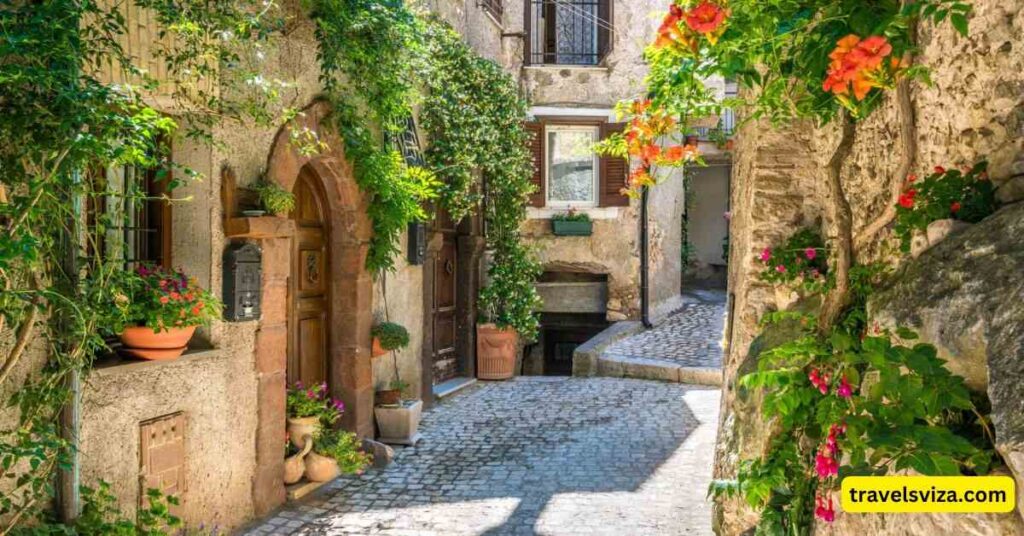
The rural areas surrounding Rome offer remarkable geographical diversity. The Lazio countryside presents a mix of volcanic landscapes, rolling hills, and fertile plains. These varied terrains support different agricultural practices and create unique microclimates ideal for specialized crop and livestock production.
Tuscan landscapes are characterized by gently rolling hills, cypress-lined roads, and meticulously maintained vineyards. The region’s agricultural landscape reflects centuries of human intervention, creating picturesque scenes that seem almost like living paintings.
Umbrian terrain represents another distinct rural environment. Known as the “Green Heart of Italy,” Umbria features mountainous landscapes, dense forests, and small agricultural settlements. Its rugged terrain has preserved traditional farming methods largely unchanged for generations.
Seasonal Considerations for Farm Tours
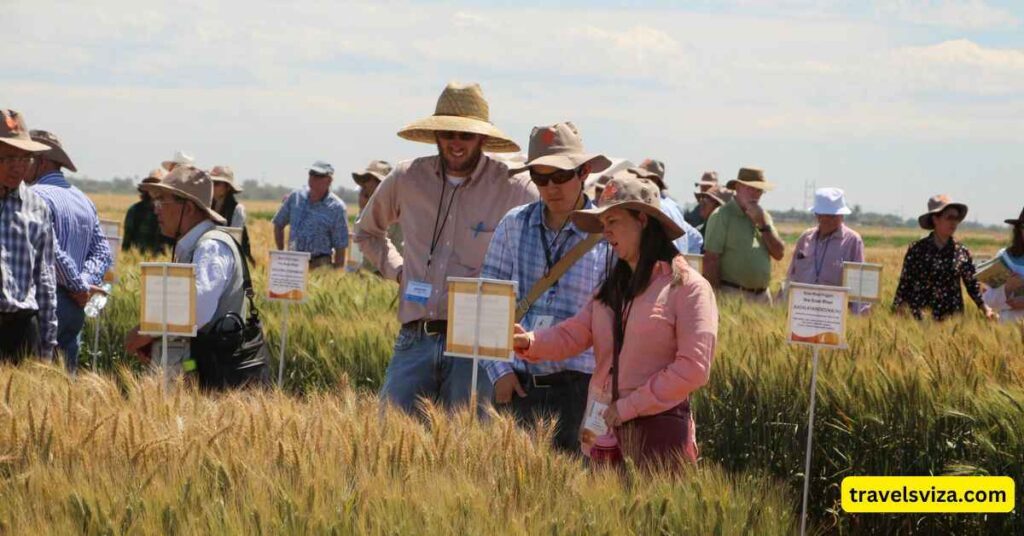
Spring (April to June) and autumn (September to November) represent the optimal periods for farm tours around Rome. These seasons offer mild temperatures, minimal tourist crowds, and peak agricultural activities.
Spring brings vibrant landscapes with blossoming crops, newborn livestock, and active farming processes. Visitors can witness planting seasons, sheep shearing, and early harvest preparations. Temperatures typically range between 15-25°C, providing comfortable exploration conditions.
Autumn offers another remarkable farm tour experience. Harvest seasons for grapes, olives, and various crops create bustling farm environments. The landscape transforms with golden and russet colors, providing stunning visual backdrops for travelers. Temperatures remain pleasant, averaging 12-22°C.
Weather variations significantly impact farm tour experiences. Farmers adapt their activities based on seasonal changes, offering travelers dynamic and authentic agricultural insights throughout the year.
Top 7 Unforgettable Farm Tours from Rome: A Culinary Journey Through Italy’s Hidden Treasures
Imagine stepping away from Rome’s ancient streets into a world where golden sunlight dances across endless vineyards and centuries-old olive groves whisper stories of tradition. These farm tours are more than just experiences—they’re gateways to Italy’s soul.
Tour 1: Wine and Olive Oil Experience in Lazio
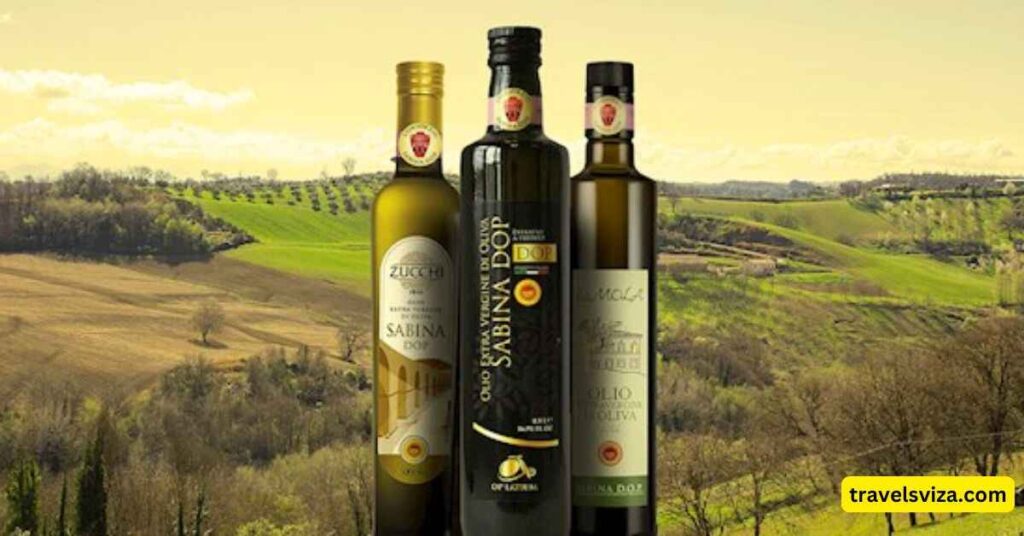
Nestled just beyond Rome’s bustling cityscape, the Lazio countryside unfolds like a living canvas painted in shades of emerald and gold. The Alban Hills, a volcanic landscape dating back to 2024, offer more than just picturesque views—they’re home to some of Italy’s most extraordinary wine and olive oil experiences.
Your journey begins in the early morning, when the mist still cradles the rolling hills and the vineyards shimmer with dew. Local vintners, whose families have cultivated these lands for generations, welcome you with warm smiles and stories that stretch back centuries.
| Experience | Duration | Highlights |
| Vineyard Walk | 1-2 hours | Ancient vines, volcanic soil exploration |
| Wine Tasting | 1 hour | 4-5 premium local wines, expert commentary |
| Olive Grove Tour | 1 hour | Traditional olive harvesting techniques |
Wine tasting here is an art form passed down through generations. Each glass tells a story of the terroir—the unique environmental conditions that give wines their distinctive character. Expert sommeliers guide you through tastings, explaining how the volcanic soil of the Alban Hills imparts a mineral complexity to the wines that cannot be replicated anywhere else in the world.
The olive grove exploration takes you through meticulously maintained groves where trees older than most European countries stand as silent guardians of culinary tradition. Here, you’ll learn about olive oil production, from tree to bottle, witnessing the careful process of harvesting and cold-pressing that creates some of the world’s most renowned extra virgin olive oils.
This tour isn’t just about tasting wine and olive oil. It’s about connecting with a landscape, understanding a culture, and experiencing the profound relationship between land, people, and sustenance. By the time you return to Rome, you’ll carry with you not just memories, but a deeper understanding of Italy’s rich agricultural tapestry.
Tour 2: Cheese-Making Workshop in Traditional Farms
In the heart of Italy’s pastoral landscape, a centuries-old tradition comes alive through the art of cheese-making. Just a short drive from Rome, traditional farms become classrooms where culinary magic transforms simple milk into extraordinary delicacies that have defined Italian cuisine for generations.
Your journey begins in a rustic farmhouse where generations of cheesemakers have perfected their craft since the early 1800s. The air is thick with the rich aroma of fermenting milk and aged cheeses, creating an immersive sensory experience that transports you deep into Italy’s agricultural heritage.
| Experience | Duration | Highlights |
| Farm Tour | 1 hour | Meet farm animals, understand dairy production |
| Cheese-Making Workshop | 2-3 hours | Hands-on mozzarella and ricotta production |
| Tasting Session | 1 hour | Sampling fresh and aged cheese varieties |
Professional cheesemakers guide you through the intricate process of transforming fresh milk into delectable Italian cheeses. You’ll learn traditional techniques passed down through family lines, experiencing the delicate art of stretching mozzarella and understanding the precise temperatures required for perfect ricotta.
The workshop isn’t just about technique—it’s a cultural immersion. You’ll work alongside local artisans, feeling the texture of fresh curds, understanding the nuanced differences between various cheese types, and appreciating the profound connection between land, animals, and food.
Tour 3: Organic Farm and Cooking Class
Imagine a cooking experience where every ingredient tells a story of sustainable agriculture and culinary passion. This organic farm nestled in Lazio’s countryside offers more than a cooking class—it’s a journey through Italy’s farm-to-table philosophy.
| Experience | Duration | Highlights |
| Farm Tour | 1 hour | Organic vegetable garden exploration |
| Ingredient Harvesting | 1 hour | Seasonal produce selection |
| Cooking Workshop | 2-3 hours | Traditional Italian recipe preparation |
| Meal Enjoyment | 1 hour | Lunch with wine pairing |
Guided by local farmers and professional chefs, you’ll walk through vibrant organic gardens, learning about sustainable farming practices and selecting the freshest ingredients for your culinary adventure. The cooking class becomes a communal experience, where participants from around the world connect through the universal language of food.
Tour 4: Castelli Romani Wine Region Exploration
The Castelli Romani, a picturesque area just outside Rome, represents a viticultural paradise where volcanic landscapes meet centuries-old winemaking traditions. Family-owned vineyards here have been producing exceptional wines since the Roman Empire, preserving techniques that have survived millennia.
| Experience | Duration | Highlights |
| Vineyard Walk | 1 hour | Explore volcanic terroir |
| Wine Production Tour | 1 hour | Understanding fermentation processes |
| Premium Tasting | 2 hours | 5-6 wine varieties with expert pairing |
Expert sommeliers guide you through the nuanced world of local wines, explaining how the region’s unique volcanic soil contributes to distinctive flavor profiles that cannot be replicated elsewhere.
Tour 5: Truffle Hunting Adventure in Umbria
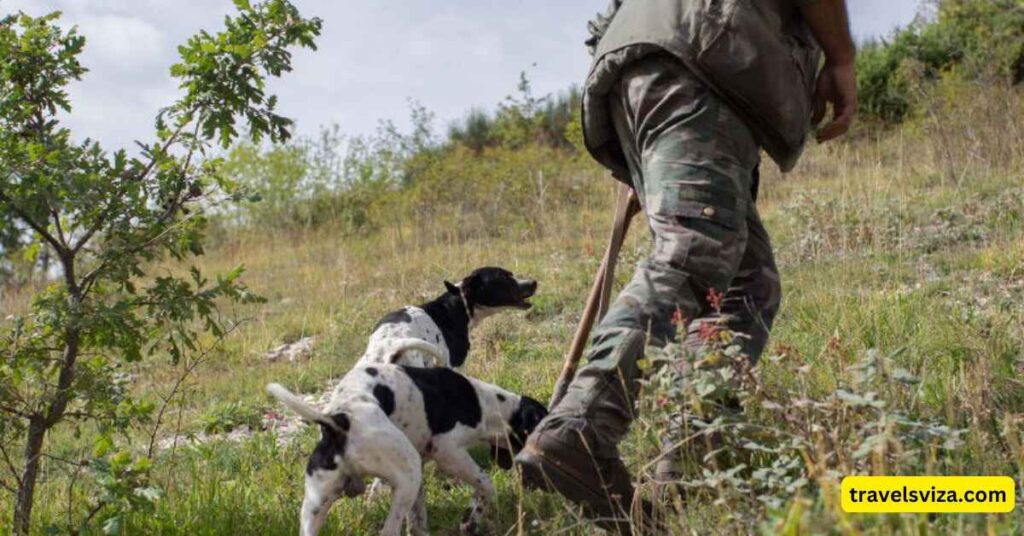
Deep in Umbria’s ancient forests, a mysterious culinary treasure awaits. Truffle hunting is more than a tour—it’s an expedition into a world where specially trained dogs become treasure hunters, uncovering gastronomic gold hidden beneath the earth.
| Experience | Duration | Highlights |
| Forest Exploration | 2 hours | Guided truffle hunting with trained dogs |
| Truffle Processing | 1 hour | Understanding identification and preparation |
| Gourmet Tasting | 1 hour | Fresh truffle dishes and wine pairing |
Professional truffle hunters and their expertly trained dogs reveal the secrets of finding these elusive fungi, sharing stories that blend scientific knowledge with folkloric tradition.
Tour 6: Horseback Riding Through Vineyards
Imagine exploring Italy’s countryside on horseback, where every hoofbeat reveals a new perspective of the landscape. This tour transforms agricultural exploration into an adventure that connects you intimately with the terrain.
| Experience | Duration | Highlights |
| Horse Introduction | 30 minutes | Safety briefing and horse pairing |
| Vineyard Ride | 2-3 hours | Scenic routes through working vineyards |
| Wine Tasting | 1 hour | Post-ride local wine experience |
Experienced guides match you with a horse suited to your riding experience, ensuring a safe and memorable journey through some of Italy’s most beautiful agricultural landscapes.
Tour 7: Dairy Farm Exploration in Tuscany
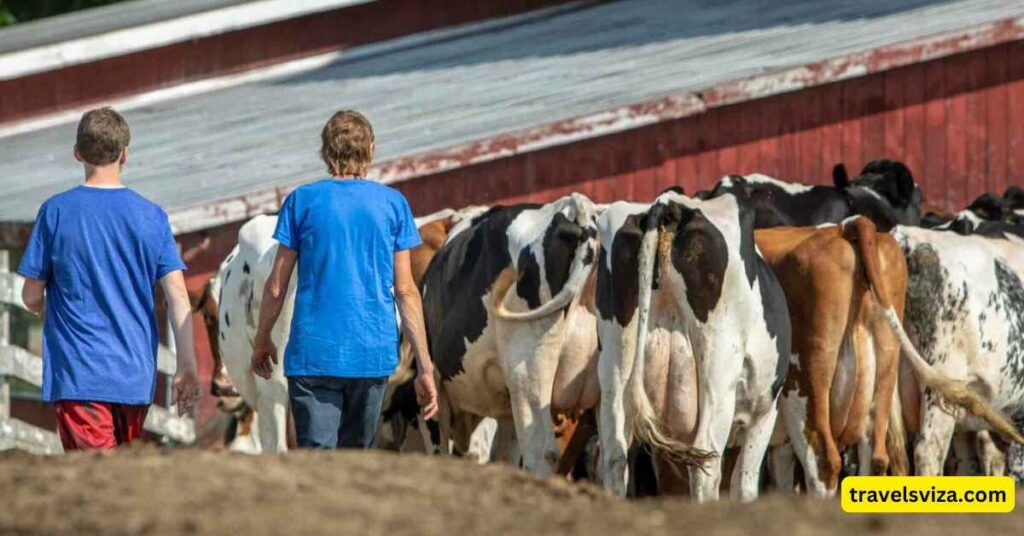
Tuscany’s rolling hills provide the perfect backdrop for an immersive dairy farm experience. Here, animal husbandry is an art form that has sustained families for generations.
| Experience | Duration | Highlights |
| Farm Tour | 1 hour | Meet dairy cows and understand care practices |
| Milking Demonstration | 1 hour | Hands-on milk production experience |
| Cheese Tasting | 1 hour | Sampling farm-fresh dairy products |
You’ll witness the entire dairy production process, from animal care to milk collection, understanding the profound connection between animal welfare and exceptional food production.
Practical Tour Planning
Embarking on a farm tour from Rome requires strategic planning to transform your journey from ordinary to extraordinary. Every detail matters when you’re about to explore Italy’s hidden rural treasures.
Transportation Options
Navigating from the bustling streets of Rome to the serene countryside demands careful transportation strategy. In 2024, travelers have multiple options to reach these picturesque farm destinations. Private tour buses offer convenient group transportation, typically departing from central Rome locations between 7:30 AM and 9:00 AM. Rental cars provide maximum flexibility, with average rental costs ranging from €50-€80 per day.
Train connections to rural regions like Lazio and Tuscany are surprisingly efficient, with regional trains connecting Rome to nearby agricultural areas in under two hours. For the most authentic experience, many tour operators now offer direct shuttle services from Rome’s city center, eliminating navigation stress and providing insider commentary during your journey.
What to Prepare and Bring
Your farm tour experience begins with intelligent preparation. Light, comfortable clothing in neutral tones works best for rural environments. Quick-dry fabrics and layers are essential, especially during spring (April-June) and autumn (September-November) tours. Sturdy walking shoes with good ankle support are non-negotiable for traversing uneven vineyard and olive grove terrain.
A lightweight backpack should contain essentials: refillable water bottle, high-SPF sunscreen, wide-brimmed hat, lightweight rain jacket, and a compact camera or smartphone with excellent photo capabilities. Professional tour guides recommend bringing a small first-aid kit, hand sanitizer, and basic translation app to enhance your rural adventure.
Sustainable Tourism Practices
Sustainable tourism isn’t just a trend—it’s a responsibility. Farm tours represent a profound opportunity to support local economies while preserving agricultural traditions. By choosing tours that prioritize local farmers, travelers directly contribute to maintaining generational farming practices.
Responsible tourists respect local ecosystems, minimize waste, and engage respectfully with farming communities. Many tours in 2024 now incorporate carbon offset programs, allowing travelers to neutralize their environmental impact while supporting rural development initiatives.
Read This Blog: How Long Can You Fish at Camp Ridgecrest Lake: Complete Angler’s Guide 2024
Cultural and Gastronomic Insights
Unraveling the rich tapestry of Italian agricultural heritage requires more than casual observation—it demands immersive exploration and genuine curiosity.
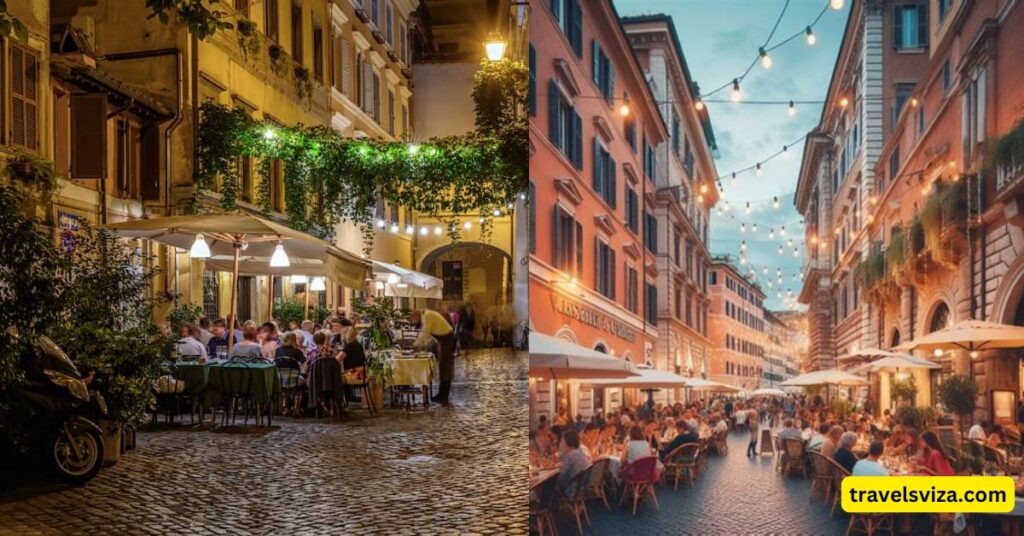
Understanding Italian Agricultural Traditions
Italian farming isn’t merely a profession—it’s a sacred cultural narrative passed through generations. Each region tells a unique story through its agricultural practices. In Tuscany, wine cultivation dates back to Etruscan civilization, with some vineyards maintaining centuries-old techniques.
Lazio’s agricultural landscape reflects a delicate balance between ancient traditions and modern sustainable practices. Farmers here don’t just grow crops; they are storytellers, preserving cultural memories embedded in every olive tree and grapevine.
Souvenirs and Product Purchasing
Farm tour souvenirs transcend typical tourist merchandise. These are edible memories, bottled experiences that transport you back to Italy’s countryside. Most farms offer carefully packaged products like extra virgin olive oil, regional wines, pecorino cheese, and truffle-infused delicacies.
When purchasing, understand custom regulations—the European Union allows travelers to bring up to 1 liter of wine and 2 kilograms of cheese without additional customs documentation. Many farms provide specialized packaging to ensure safe international transportation, transforming your souvenir into a delicious storytelling artifact.
Also Read: Discovering Paradise: The Ultimate Guide to Spanish Virgin Islands Yacht Charter (2024)
Pricing and Booking Considerations
Transforming travel dreams into reality requires strategic financial planning and understanding of tour economics.
Tour Pricing Structures
Farm tour pricing in 2024 varies widely, typically ranging from €75 to €250 per person. Half-day experiences cluster around €90-€150, while full-day immersive tours approach €200-€250. Price variations depend on tour complexity, included meals, transportation, and exclusive experiences like private wine tastings or hands-on workshops.
Most reputable tour operators offer transparent pricing with clear inclusions: transportation, guide services, tastings, and sometimes light meals.
| Tour Type | Duration | Price Range | Typical Inclusions |
| Half-Day Experience | 4-6 hours | €90-€150 | Transportation, Guided Tour, Basic Tasting |
| Full-Day Immersion | 7-9 hours | €200-€250 | Transportation, Multiple Tastings, Workshops, Lunch |
Accessibility and Special Considerations
Inclusive travel means considering diverse traveler needs. Modern farm tours increasingly design experiences accommodating various physical abilities. Most tours categorize difficulty levels: easy (minimal walking, flat terrain), moderate (some uneven surfaces), and challenging (extensive walking, steep landscapes).
Travelers with mobility limitations should communicate specific requirements during booking. Many tour operators now offer adaptive equipment and personalized route modifications to ensure everyone can enjoy Italy’s rural wonders.
FAQ
What is the best time of year for farm tours from Rome?
Spring (April-June) and autumn (September-November) offer the most pleasant weather and vibrant agricultural activities. These seasons provide perfect temperatures and showcase the most picturesque landscapes of the Italian countryside.
How long do typical farm tours last?
Most farm tours range from half-day (4-6 hours) to full-day experiences (7-9 hours). Depending on the specific tour and region, you can choose experiences that fit your travel schedule and interests.
Are farm tours suitable for children and families?
Many farm tours offer family-friendly experiences with interactive activities like cheese-making and animal interactions. Children can learn about agriculture, taste fresh products, and enjoy hands-on educational experiences in a safe environment.
Do I need to speak Italian to enjoy these tours?
Most professional farm tours provide English-speaking guides and offer multilingual experiences. Basic communication and enthusiastic engagement matter more than fluent Italian language skills.
What should I wear on a farm tour?
Comfortable, layered clothing and sturdy walking shoes are essential for farm tours. Bring a light jacket, hat, and clothing that can handle potential dirt or agricultural environments.
Conclusion
Farm tours from Rome offer more than just a travel experience—they’re a passport to Italy’s soul. By stepping into the countryside, you’ll discover a world where every olive grove tells a story, every vineyard whispers centuries of tradition, and every bite connects you to the heart of Italian culture.
These journeys transform tourists into storytellers, creating memories that linger long after the last sip of wine and taste of fresh cheese.